Best Hybrid Golf Clubs For High Handicappers 2026
We take a closer look at the best hybrid golf clubs for high handicappers.

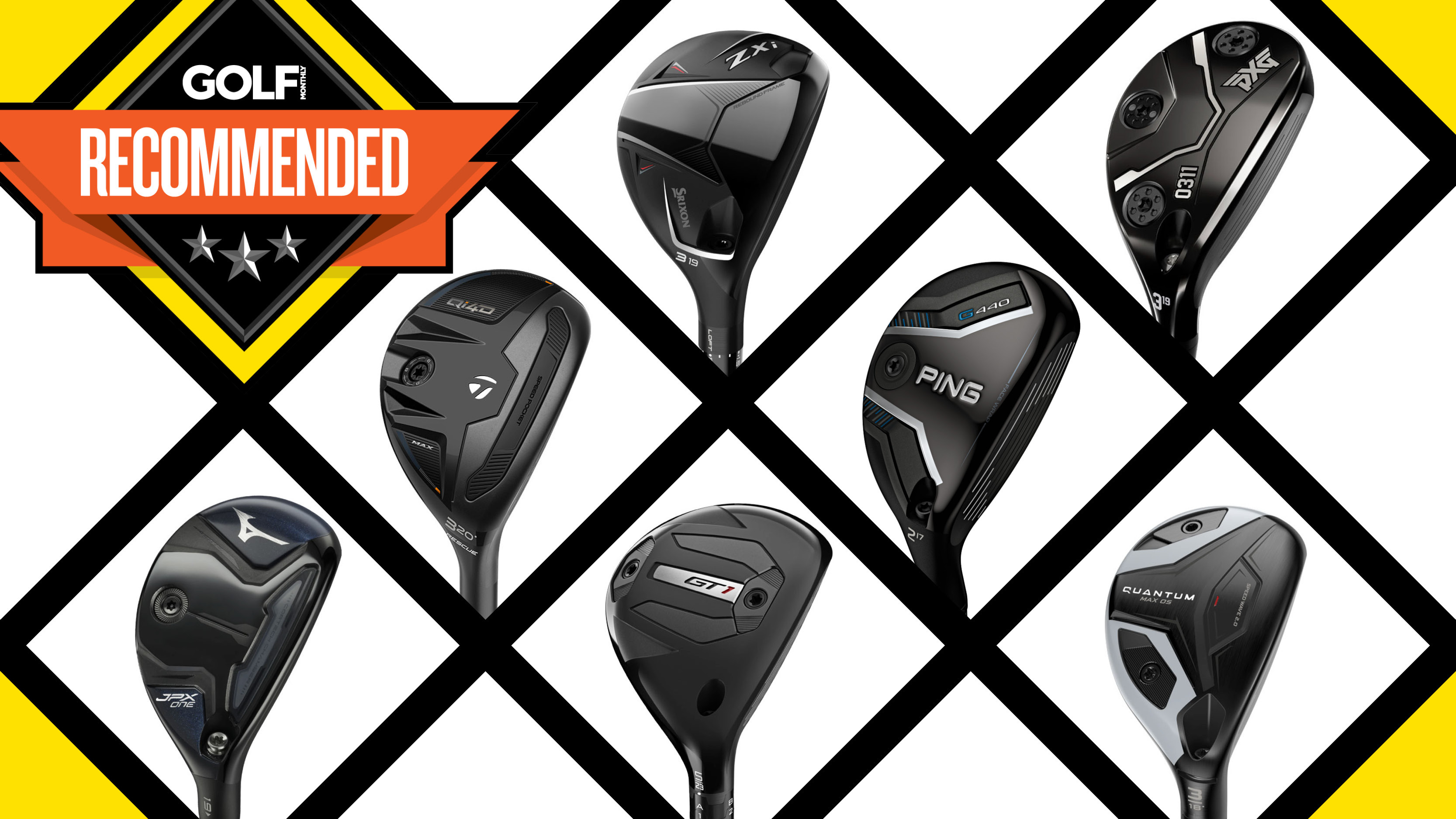
Subscribe to the Golf Monthly newsletter to stay up to date with all the latest tour news, equipment news, reviews, head-to-heads and buyer’s guides from our team of experienced experts.
You are now subscribed
Your newsletter sign-up was successful
Want to add more newsletters?

Delivered daily
Daily Newsletter
Sign up for all the latest tour news, gear reviews, head-to-heads and buyer’s guides plus features, tips from our top 50 coaches and rules advice from our expert team.

Once a week
Kick Point
Sign up to our free Kick Point newsletter, filled with the latest gear reviews and expert advice as well as the best deals we spot each week.

Once a week
Women's Golf Edit
Sign up to our free newsletter, filled with news, features, tips and best buys surrounding the world of women’s golf. If you’re a female golfer, you won’t want to miss out!
Golf is hard enough without making it harder on yourself, and there’s no shame in using clubs designed to make the game easier. Manufacturers recognise that golfers come in all shapes and abilities, which is why hybrids have become increasingly popular in recent years. Many players now choose to add more “lumber” at the top end of the bag alongside one (or more) of the best fairway woods. That said, with so many models available, finding the right hybrid for your handicap can be a challenge. That’s where we come in!
We’ve tried, tested and narrowed down the very best golf hybrid clubs to make your decision easier. In simple terms, hybrids are built to help golfers hit stronger, more consistent long-range approach shots. They’re significantly more forgiving than a traditional 4- or 5-iron and make it easier to escape tricky lies. High handicappers in particular stand to benefit the most from adding a hybrid to the bag.
Let’s take a closer look at the best hybrid golf clubs for high handicappers. And while you’re here, it’s also worth checking out our guides to the most forgiving hybrids and the best hybrid golf clubs for seniors as well.

With over 14 years of experience working in the golf industry coupled with his experience playing on both the EuroPro Tour and Clutch Pro Tour, Sam is better placed than anyone to head up our review content relating to fairway woods, hybrids, wedges and golf balls.
The Quick List
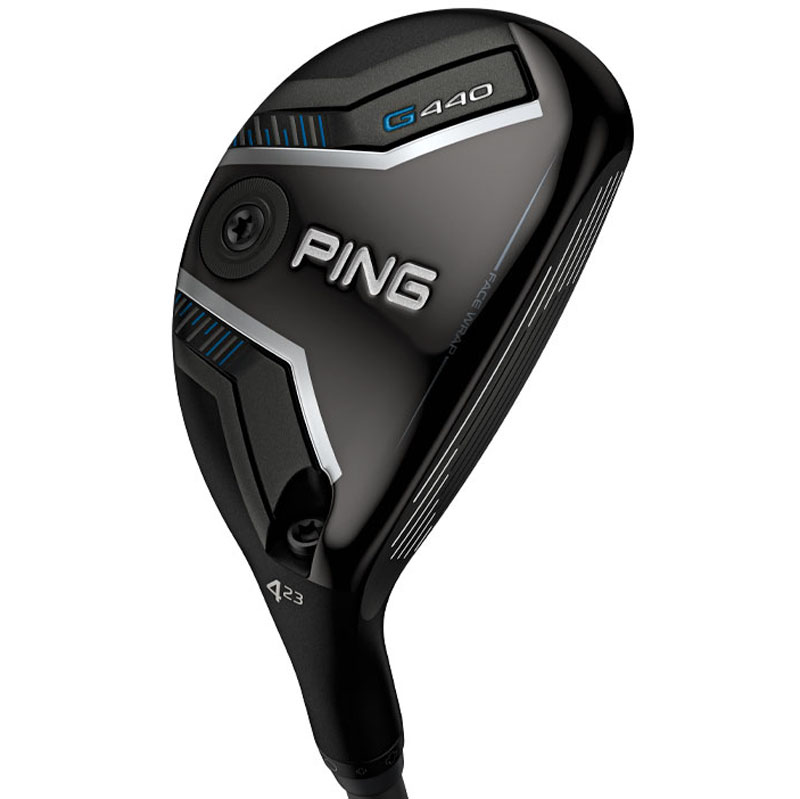
The Ping G440 hybrid is an all-round model that will perform for wide range of golfers. The larger head inspires confidence while the refined tech means it excels in different situations on the course.
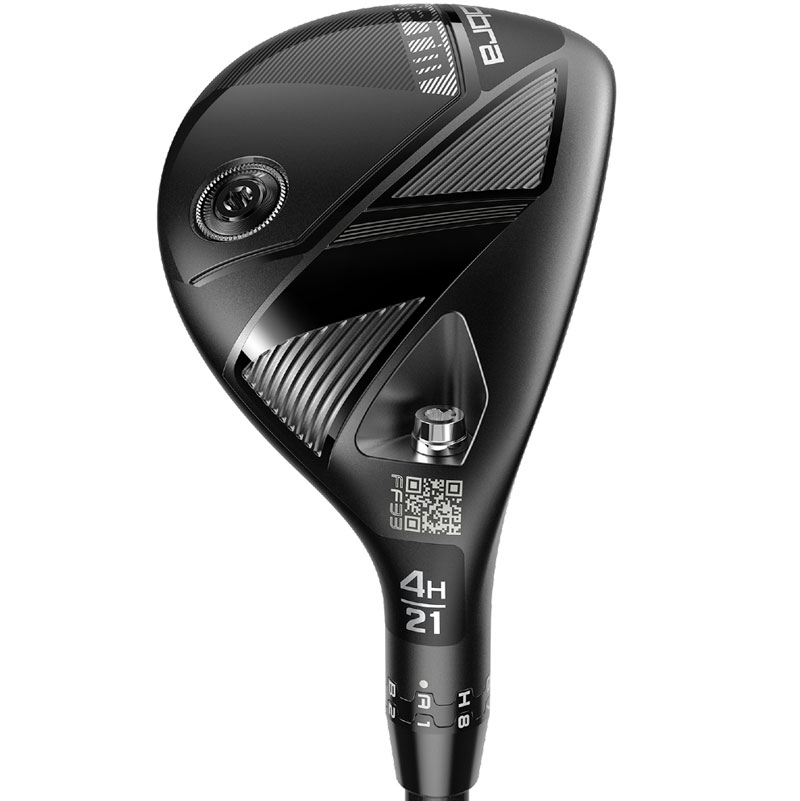
Thanks to its outstanding FutureFit33 adjustability, the OPTM is arguably the most adaptable hybrid on the market and is especially well suited to mid- and lower-handicap players. It also presents a compact, clean profile at address.
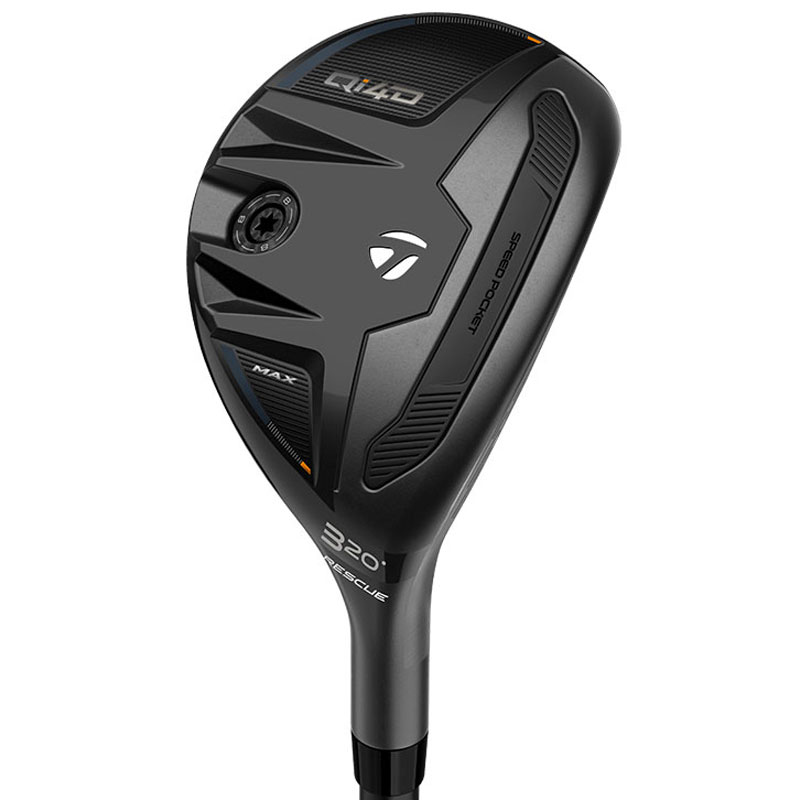
The TaylorMade Qi4D Max is a powerful and forgiving hybrid that produces strong ball speeds, effortless launch and consistently tight dispersion. While the absence of adjustability may put off some players, its overall performance and distance output make it a superb choice for golfers who want forgiveness without giving up yardage.
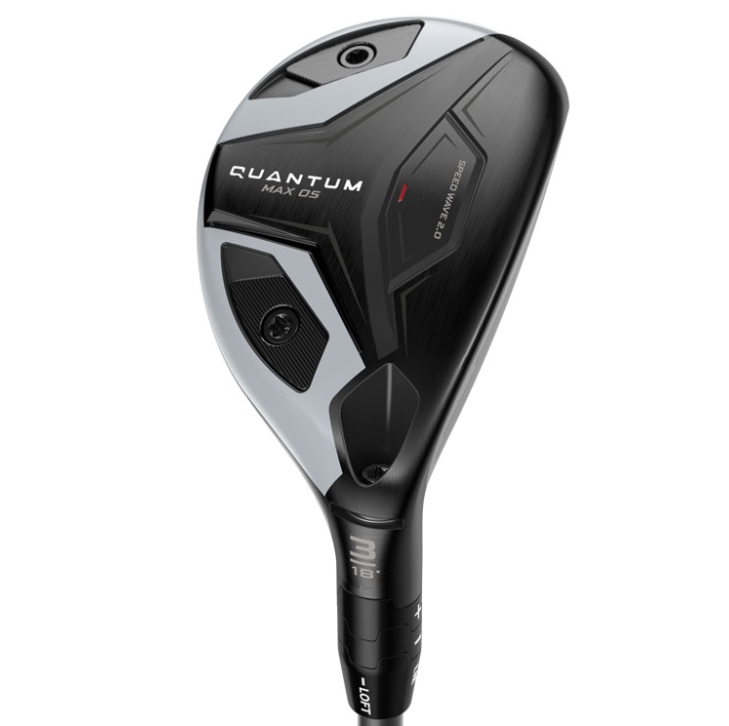
The Callaway Quantum Max OS is an exceptionally forgiving hybrid that delivers consistent performance both on the range and out on the course. Despite being positioned as a game-improvement option, its high, controlled ball flight and reliability make it suitable for a range of golfers.
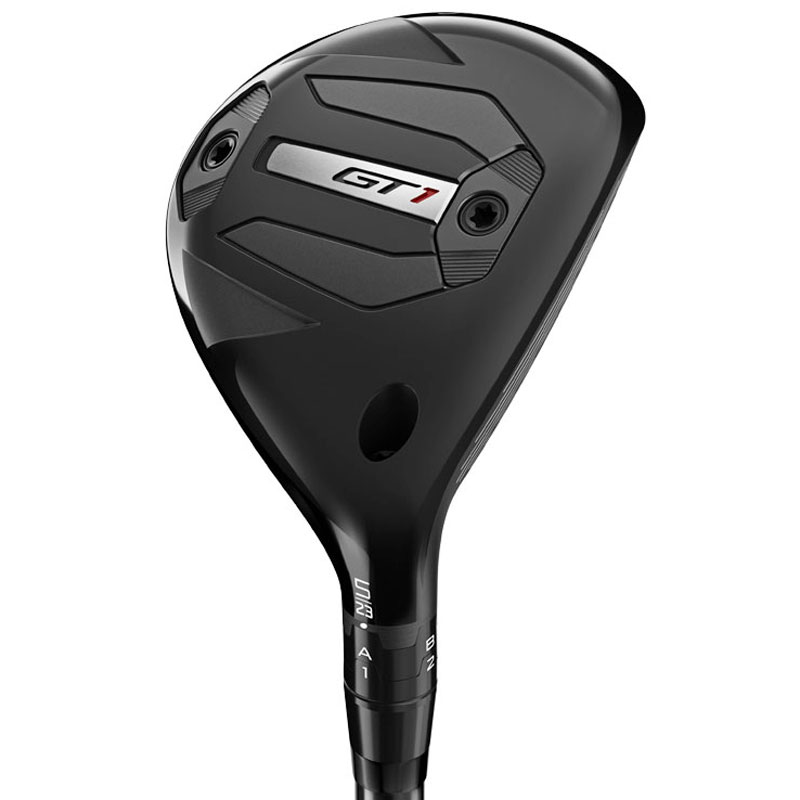
The GT1's large head and confidence-inspiring looks will be loved and appreciated by golfers of all abilities. The classic look and Titleist feel are matched with solid power and performance.
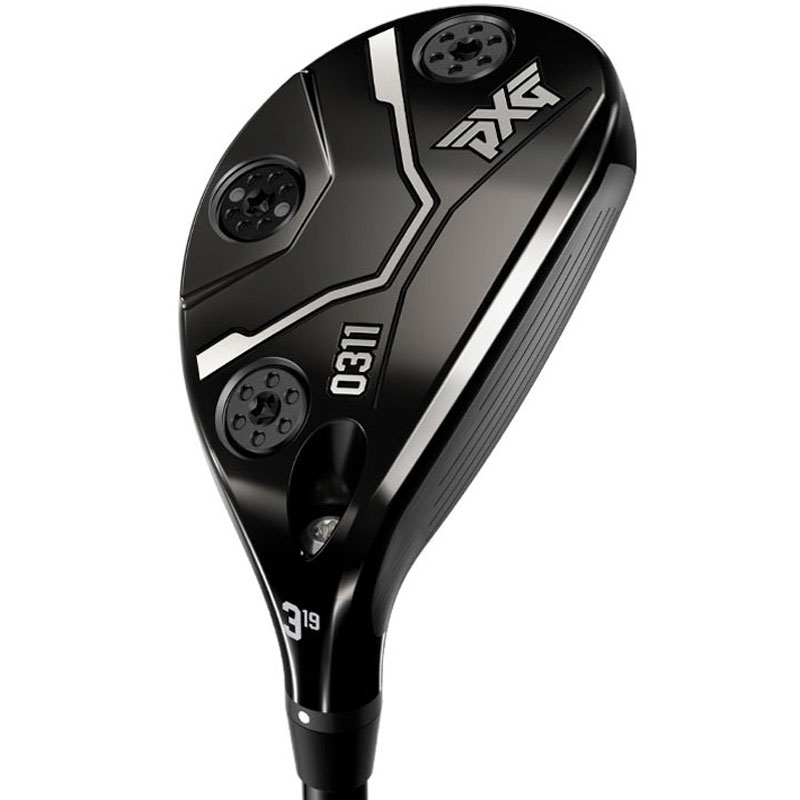
The 0311 Black Ops hybrid is a great option for those wanting a hybrid to produce a high ball flight and a club to help them escape tricky lies they may face on the course.
Load the next two models
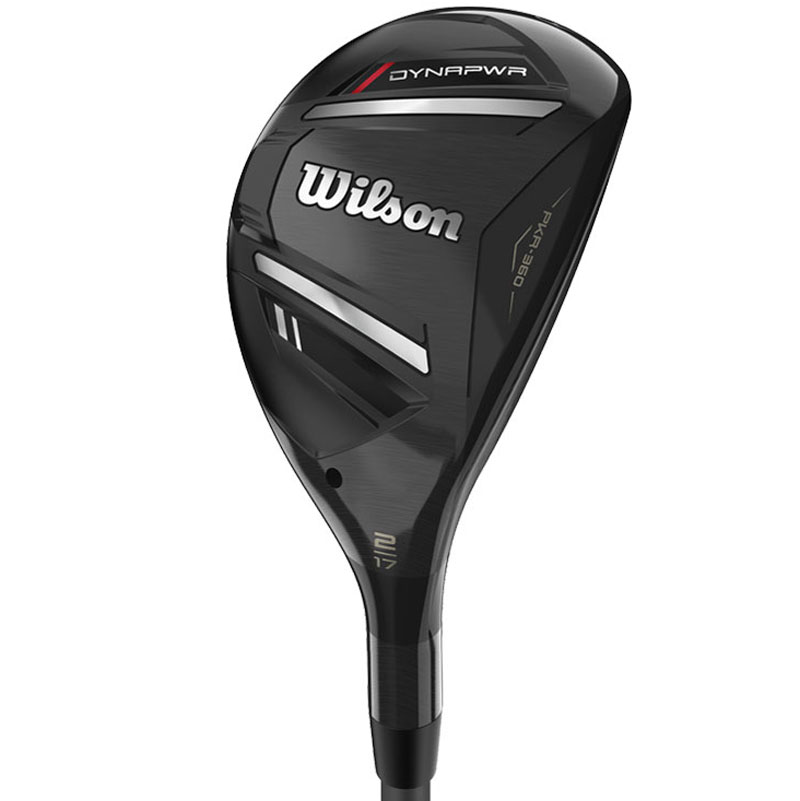
The Dynapwr could be the dark horse in the hybrid category for 2025. It offers exceptional forgiveness and height, performing well from a multitude of lies.
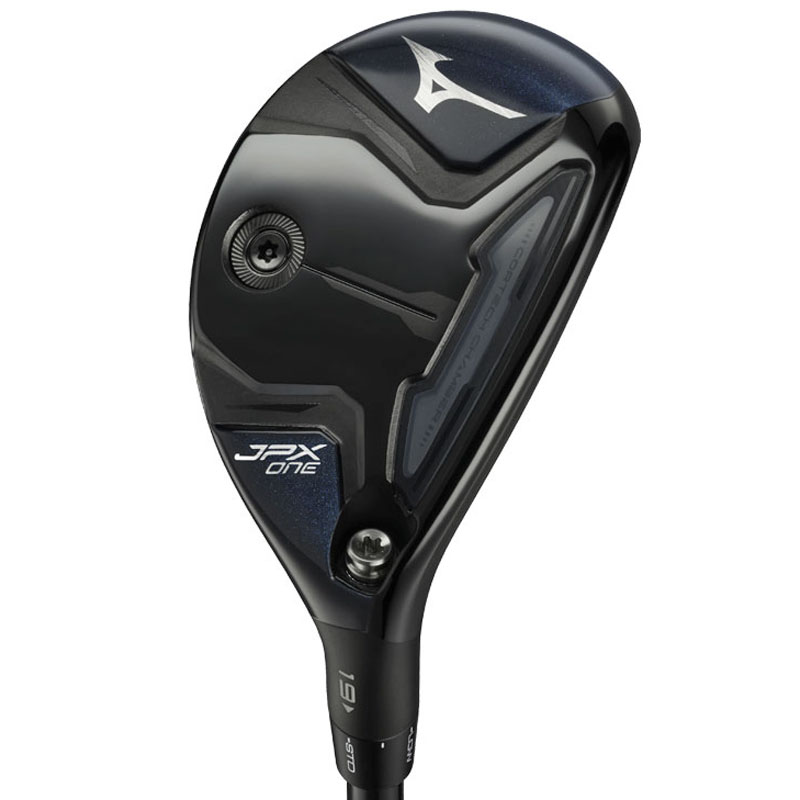
As well as looking great, the reliable gapping and excellent all-round playability on offer make the JPX One Hybrid a strong option for golfers upgrading the top end of their bag, particular those who need a little helping getting the ball airborne.
Best Hybrid Golf Clubs For High Handicappers
Top pick
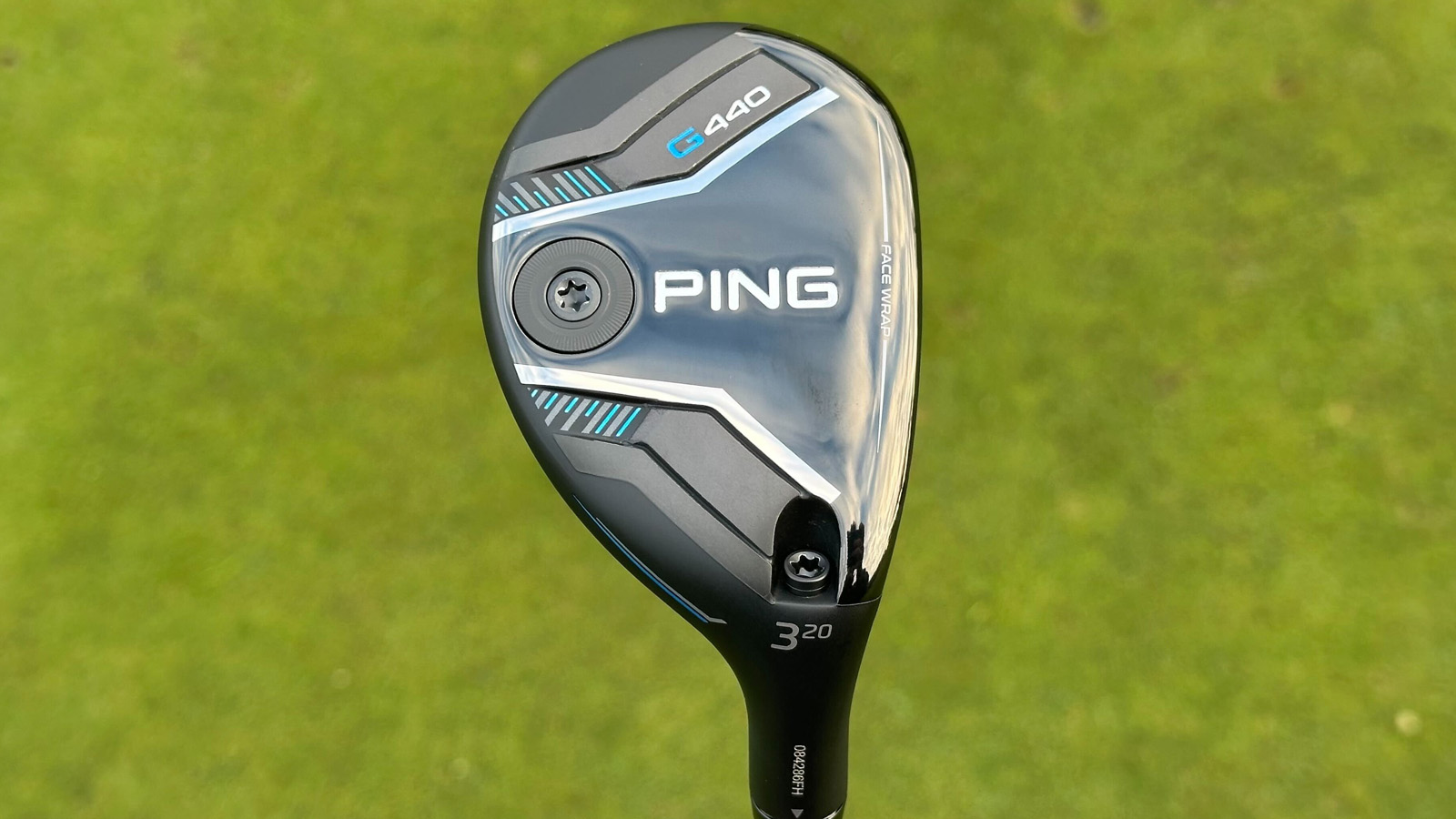
Specifications
Reasons to buy
Reasons to avoid
Our top pick for 2026 is the G440 hybrid from Ping. If you’ve read my G430 hybrid review, you’ll know how highly I rated that model, so expectations were high for the G440 and it certainly delivered. The overall look hasn’t changed dramatically, with a generously sized footprint that will inspire confidence for higher handicappers. However, the new rounded sole design allows the head to sit more flush to the turf at address, which is a subtle update I really appreciated.
In testing, the standout feature was the versatility. Whether from the tee, the fairway or especially the rough, the G440 performed superbly. Its ability to handle a wide variety of lies with consistency makes it one of the most forgiving hybrids available, offering the kind of forgiveness many golfers crave.
I’d strongly encourage high handicappers to at least explore Ping’s range before making a decision, whether that’s the best Ping drivers, best ping irons, wedges or putters. Ping clubs are typically forgiving, easy to use and exceptionally well suited to newer players or those looking for a little extra help.
- Read our full Ping G440 Hybrid Review
Best adjustability
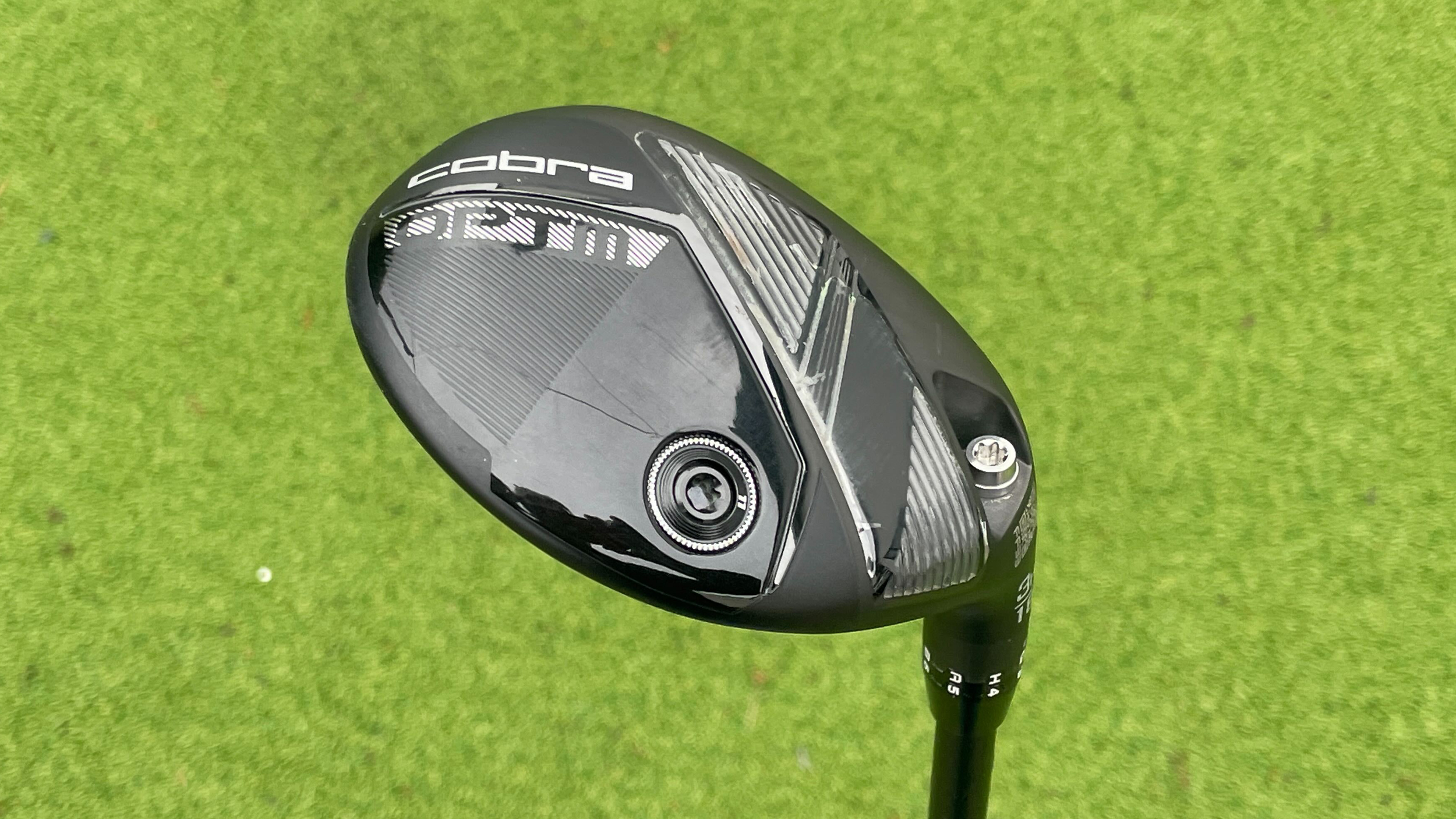
Specifications
Reasons to buy
Reasons to avoid
Our top choice for adjustability is the Cobra OPTM hybrid. It once again incorporates the FutureFit33 hosel introduced last year, offering 33 different settings to fine-tune launch, ball flight and gapping. It may sound complicated and you may find it a little overwhelming at first, but once you understand the system it’s quite straightforward and simple to tweak.
From a visual standpoint, Cobra has refined the look compared to the previous DS-ADAPT model. The headcover is sharp, the sole design stands out and the satin crown works beautifully with the red-and-black shaft to give the club a premium finish. At address it looks excellent, although the head is slightly more compact than some of the other hybrids in this guide and that may be less attractive to higher handicap players who seek the reassurance of a larger head.
In terms of performance, the feel is solid and responsive, delivering plenty of feedback through impact. It’s not the softest hybrid available, but it strikes a very nice balance. The sound is well judged too as its neither loud nor harsh, yet not overly muted either. My carry distances were exactly where expected, and the marginally higher spin rates helped generate softer landings into greens. Those numbers can be further refined thanks to the wide range of adjustability on offer.
Overall, the Cobra OPTM represents strong value given its playability and versatility. While some higher handicappers may prefer a larger head for maximum forgiveness, golfers who prioritise a controlled high flight and extensive adjustability will find plenty to admire here.
- Read our full Cobra Optm Hybrid Review
Best for slicers
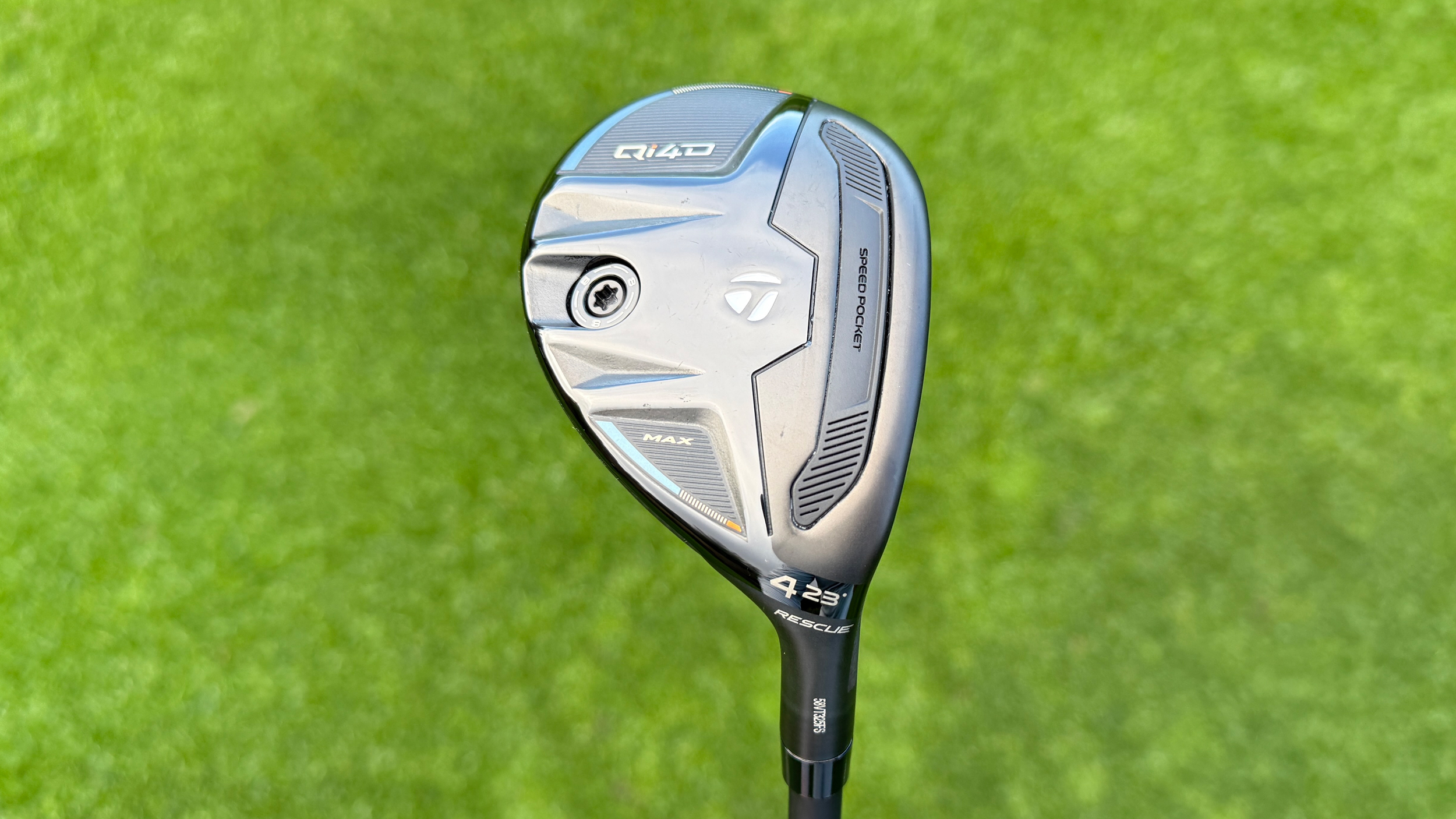
Specifications
Reasons to buy
Reasons to avoid
If you struggle with a slice, the latest Qi4D Max from TaylorMade could prove to be a real game changer. While it isn’t specifically draw-biased like its predecessor the Qi35 Max, I noticed a clear improvement in dispersion compared to the standard Qi4D Rescue. It also boasts a stylish, premium aesthetic, complemented by a smart, high-quality headcover. The Max features a larger footprint at address than the standard model, but it never feels oversized or cumbersome behind the ball.
From a technology standpoint, the Qi4D hybrids utilise a multi-material construction, combining 450 stainless steel with an ultra-light carbon fibre crown to optimise weight distribution. Familiar TaylorMade innovations remain, including the cut-through Speed Pocket to maintain ball speed on low-face strikes and Twist Face to help tighten dispersion on off-centre hits.
During testing, the raw data between the Max and the standard model was very similar. However, I lost noticeably more shots to the right with the standard version, while the Max offered greater forgiveness on mishits. Distance numbers were among the strongest I’ve seen recently, with slightly higher launch and faster ball speeds. I also found it easier to achieve consistent contact from the rough with the Max compared to the standard Qi4D. So if you’re a shorter hitting looking for one of the most forgiving hybrids to attack greens from range and to negate that right miss, the Qi4D Max is a stand out contender.
- Read our full TaylorMade Qi4D Max Hybrid Review
Best from any lie
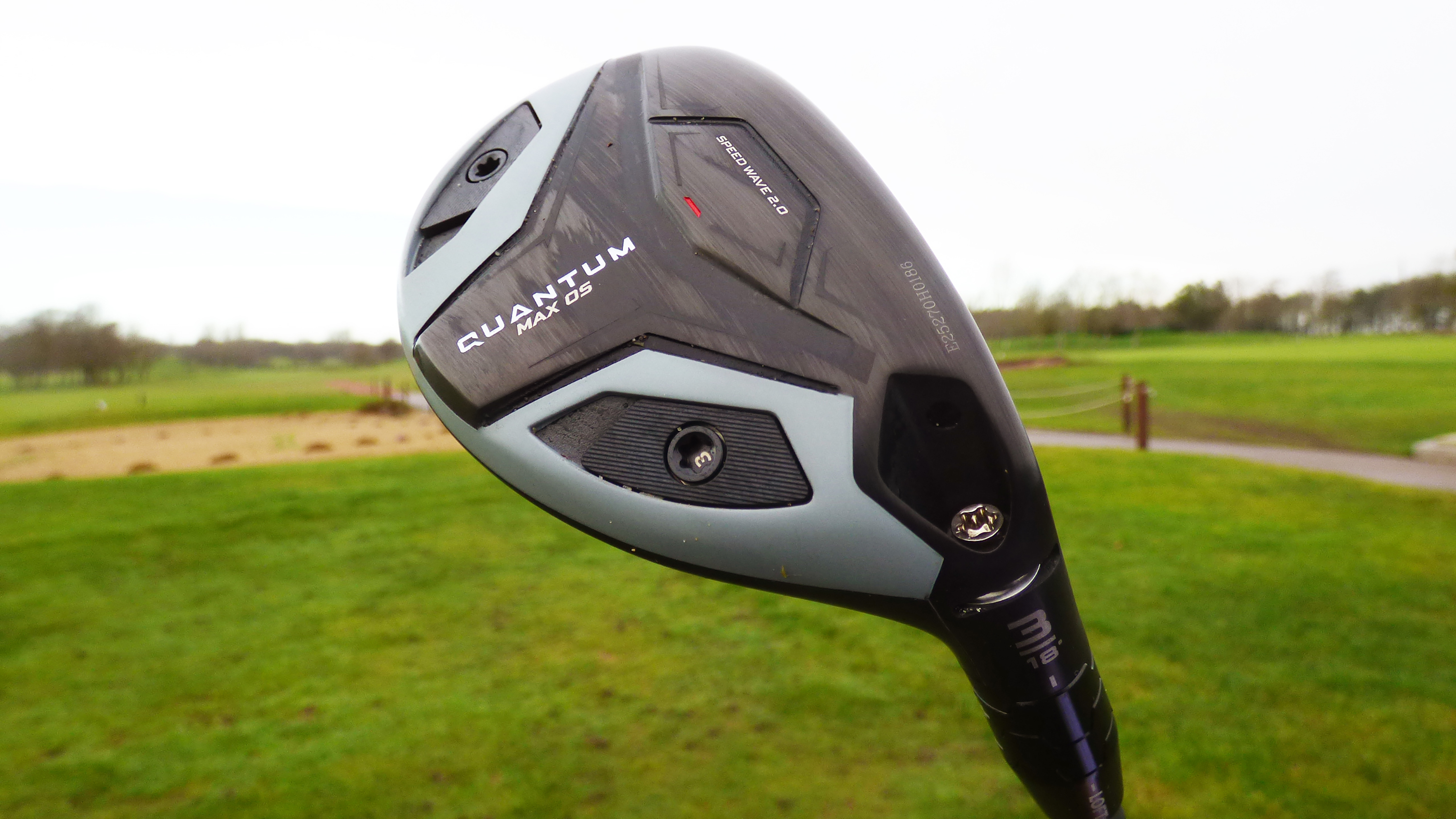
Specifications
Reasons to buy
Reasons to avoid
There are three hybrid models in Callaway’s new Quantum family and from a forgiveness standpoint, the Max OS is the clear standout, making it the best choice for higher handicap players. It’s loaded with technology, including Speed Wave 2.0 to enhance ball speed, a Step Sole for improved turf interaction and an Ai-Optimized Face that features across the entire Quantum lineup.
Visually, the Max OS is noticeably larger than the standard model, both at address and when viewed from underneath. That’s typical of a game-improvement design, with the expanded footprint helping to inspire confidence, again something that should suit higher handicap golfers.
Performance-wise, the sound and feel at impact are classic Callaway, adding to the overall sense of reassurance. In testing, ball speed numbers were around mid-pack compared to other 2026 hybrids I’ve tried, but the standout characteristic was the ball flight, which was controlled, stable and very pleasing to the eye.
On the course, it proved highly capable from a variety of lies. Turf interaction on approach shots was excellent and the higher launch allowed me to attack greens confidently, knowing the ball would land softly and hold. Given how easy it is to use, this has all the makings of a go-to hybrid for high handicappers throughout the year.
- Read our full Callaway Quantum Max OS Hybrid Review
Best for feel
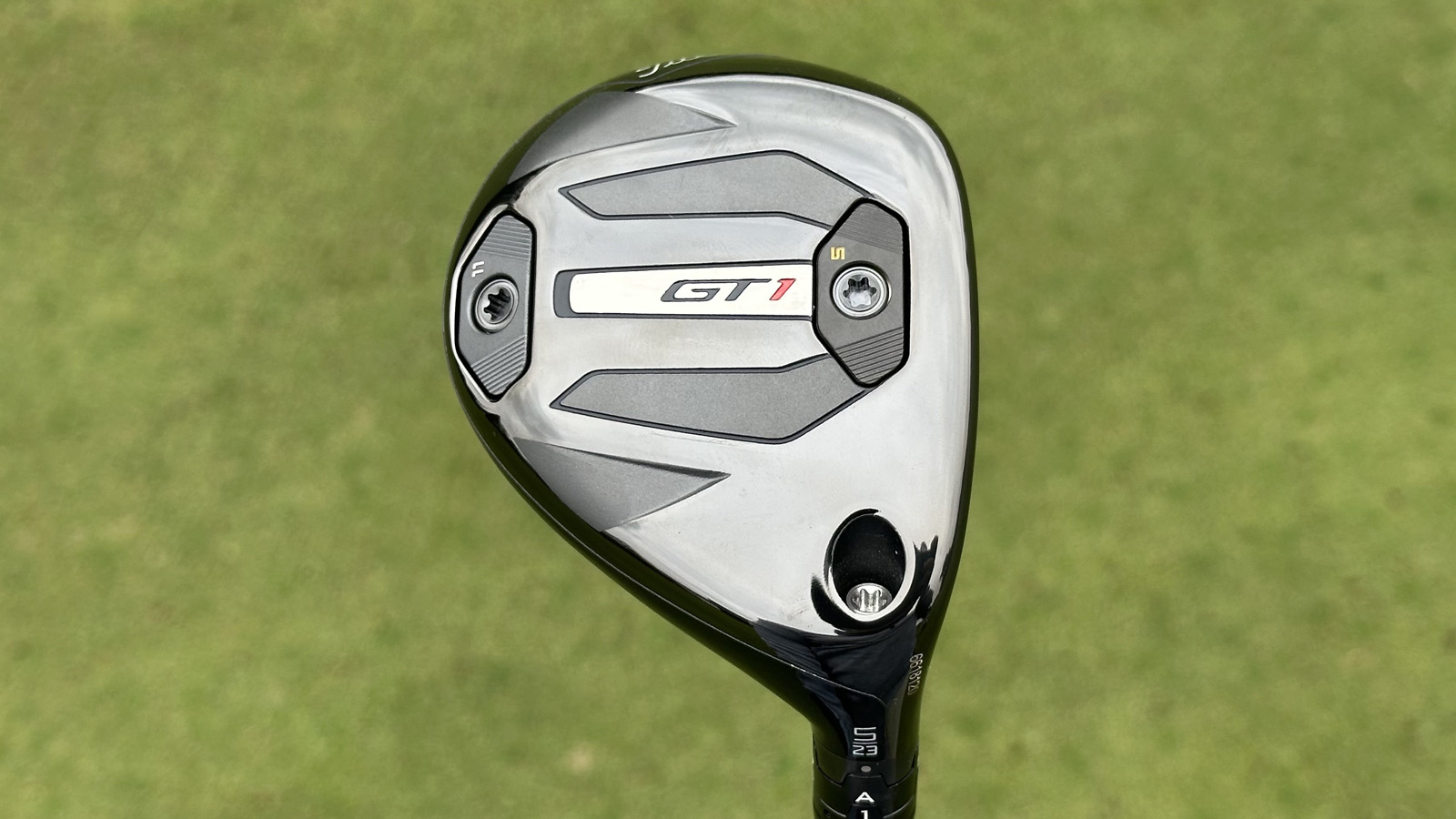
Specifications
Reasons to buy
Reasons to avoid
The Titleist GT1 is one of three models in the GT hybrid lineup, and all three delivered excellent feedback during my testing. The GT1 is designed to produce the highest launch of the trio and when tested alongside the GT2 and GT3, it clearly generated the most elevated flight while maintaining very similar ball speed numbers.
What really stood out in the data, however, was the descent angle of 45.2 degrees. That steep landing angle was a key reason the GT1 proved so effective from the deck and when attacking greens, helping shots stop quickly and hold their line. It also retains the classic Titleist feel (premium, solid and powerful) despite the noticeably larger head shape. The acoustics were particularly impressive and enhanced the overall sensation at impact, making it the standout in that department within this guide.
The first thing I noticed when taking the GT1 onto the course was the size of the head. The footprint is considerably larger than the other GT models and, compared to others in this list, it’s a design feature that many high handicappers will appreciate. It’s best described as a crossover between a hybrid and a higher-lofted fairway wood, yet it still delivers the excellent feel you’d expect from a Titleist club.
- Read our full Titleist GT1 Hybrid Review
Best from the rough
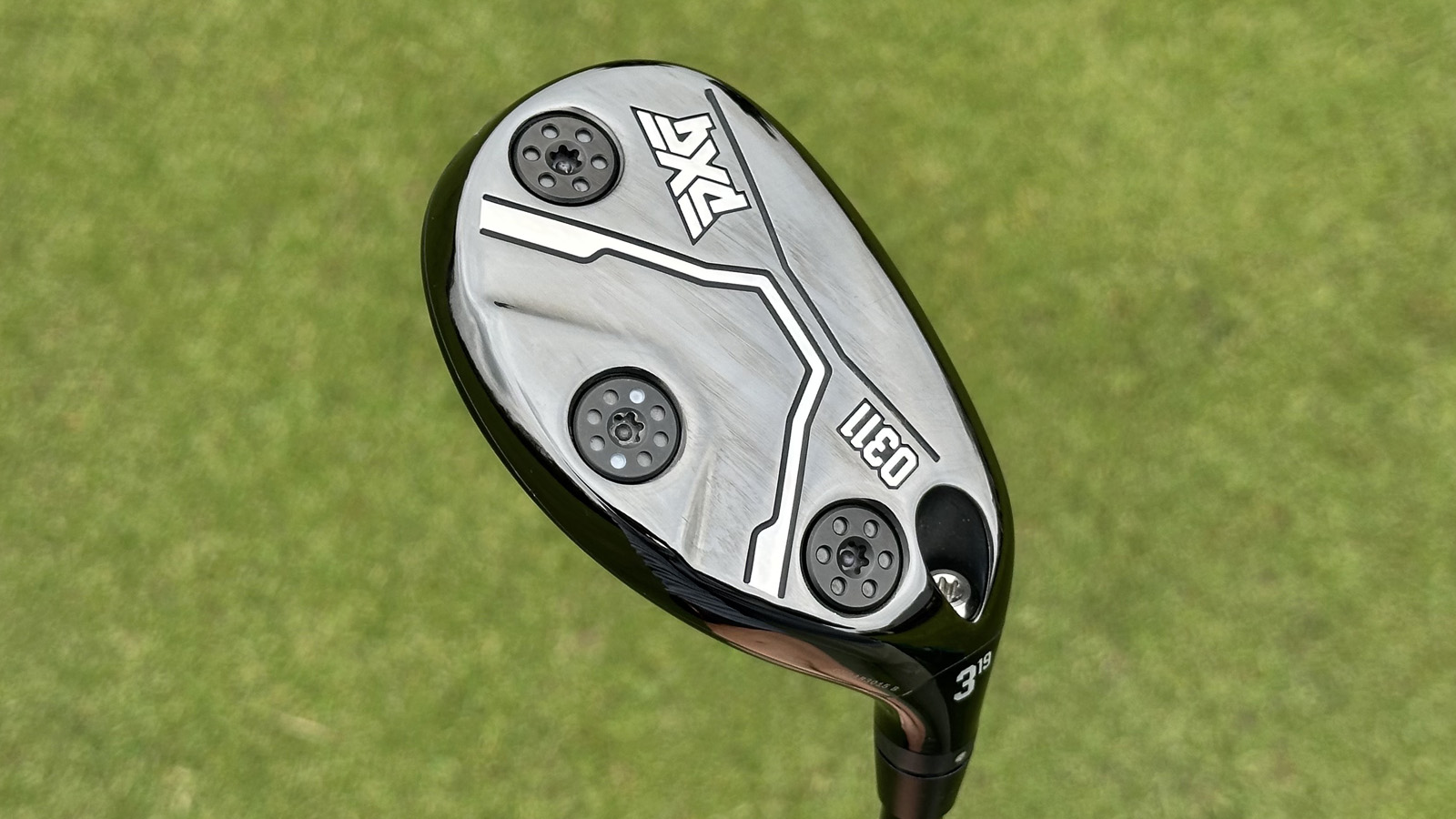
Specifications
Reasons to buy
Reasons to avoid
As mentioned, higher handicappers would be wise to consider hybrids and the best fairway woods that perform well from the rough and awkward lies. Simply put, you’re more likely to find yourself off the fairway than a single-figure player, so having clubs that offer extra help in those situations makes sense.
One model that fits that brief is the 0311 Black Ops from PXG, a brand that has steadily improved its hardware releases in recent years. It’s one of the most forgiving options in this guide, particularly from the rough where it does an excellent job of digging the ball out of tough lies and advancing it up the hole with relative ease compared to some other models here. It’s not the outright fastest or longest hybrid on this list, but it still produces solid distance numbers and won’t leave you short.
In terms of aesthetics, it features a modern gloss black finish with subtle silver detailing that gives it a premium, clean appearance both in the bag and at address. One thing I noticed immediately was how flush the face sits to the turf when soled behind the ball. This is a detail many golfers will appreciate. Overall, if you’re looking for maximum assistance from the rough, this is a hybrid that absolutely deserves a place on your shortlist.
- Read our full PXG Black Ops 0311 Hybrid Review
Best value
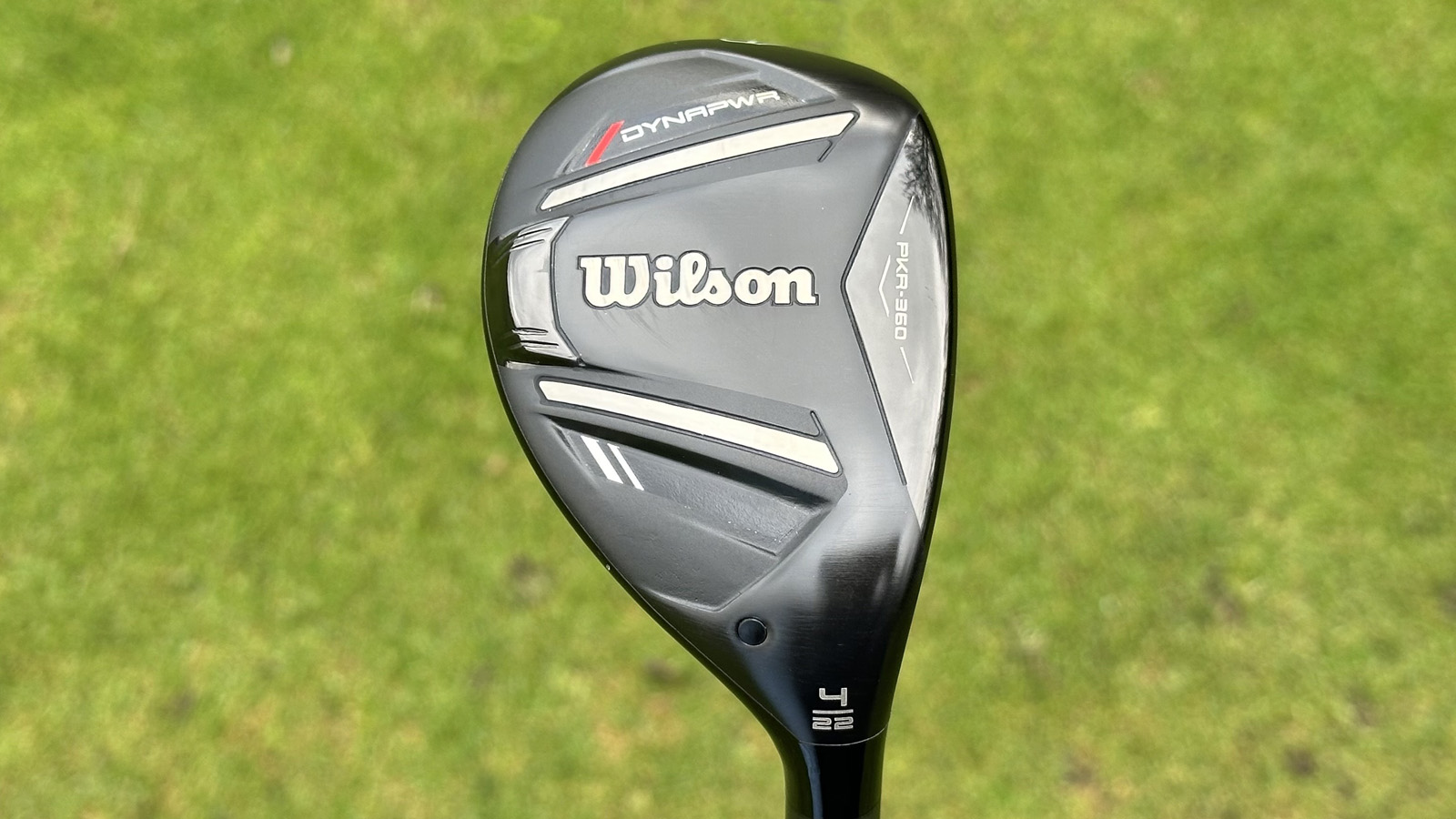
Specifications
Reasons to buy
Reasons to avoid
Our choice for best value hybrid is the Wilson Dynapwr, a model that combines a classic head shape with modern technology to deliver impressive forgiveness at a very competitive price. It’s another highly forgiving option from a variety of lies, performing well from both the fairway and the rough. That versatility makes it a dependable choice across different course types. It’s also easy to launch, which will particularly benefit players with slower swing speeds or those who struggle to get the ball airborne and consequently lose distance.
Given its lower price point compared to others in this guide, there are a couple of compromises. The bonded head means there’s no adjustability for loft or lie, which feels like a slight missed opportunity. Spin rates were also on the higher side during testing, which meant it didn’t quite match some rivals in the distance stakes. That said, when you balance cost against performance, the Wilson Dynapwr hybrid represents excellent value and stands out as one of the most forgiving hybrids I’ve tested this year.
- Read our full Wilson 2025 DYNAPWR Hybrid Review
Best for high launch
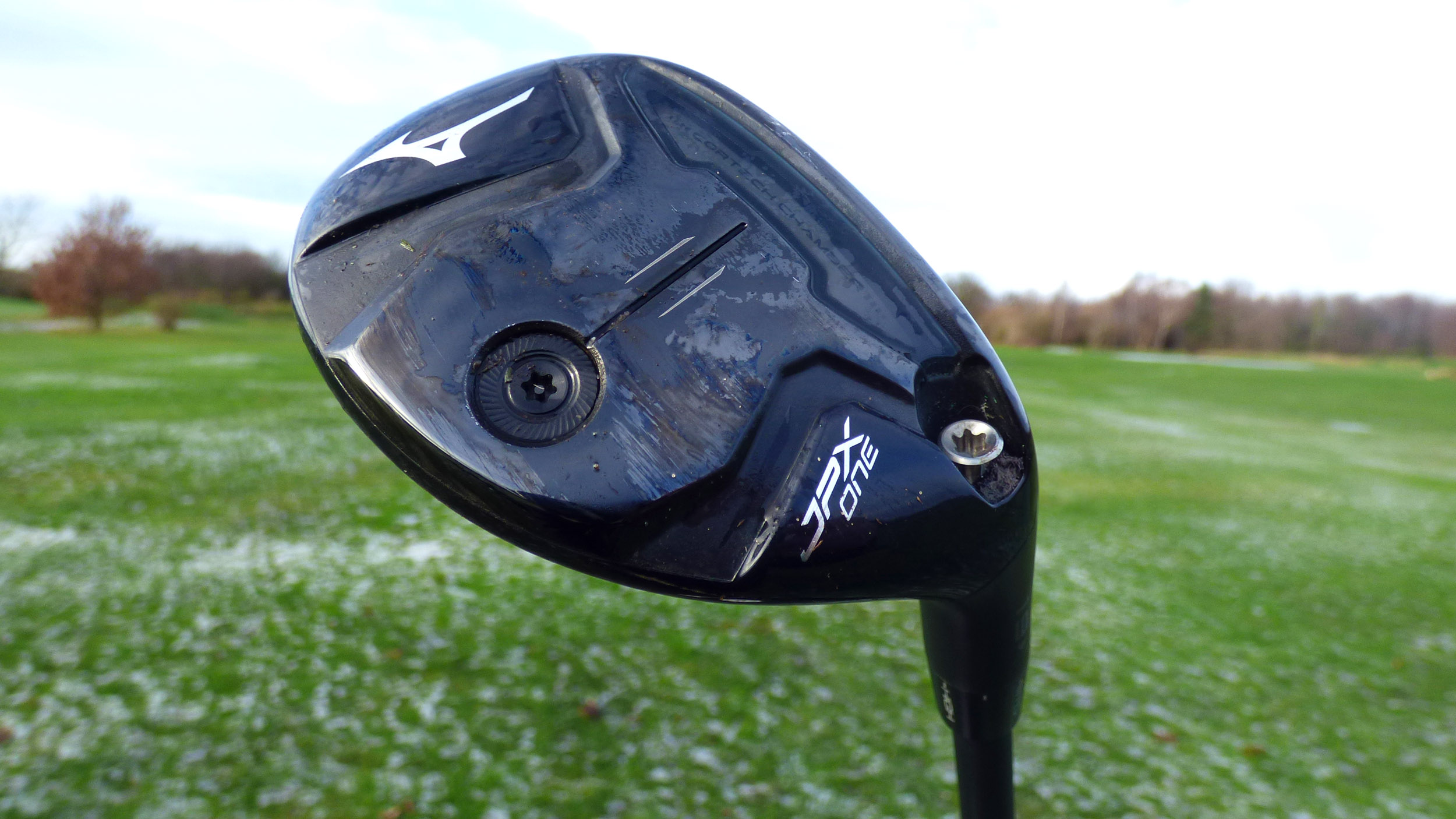
Specifications
Reasons to buy
Reasons to avoid
The JPX One hybrid from Mizuno brings the same engineering principles found across the rest of the JPX One range into the long-iron replacement slot in the bag. A key feature is the new Waffle Crown design, which helps redistribute weight and, in my testing, contributed to a strong, high launch straight off the face. When struck well, the feel is powerful and the flight both high and penetrating. There was a slight loss of performance on thinner strikes, but that’s fairly typical in this category.
In terms of looks, the JPX One has plenty of appeal. The design is clean and understated, yet still modern and stylish. It’s slightly more compact than some of the other hybrids in this guide, but it’s certainly not just for elite ball-strikers as there’s still enough footprint behind the ball to inspire confidence. The glossy head finish may not be to everyone’s taste, myself included, but that’s entirely subjective.
On the course, I tested it from the tee, the fairway and a range of lies in the rough. Off the tee, it delivered strong, consistent numbers, while approach shots flew high and landed softly on longer par fours and reachable par fives. The high launch on offer makes this an attractive option for high handicap players.
- Read our full Mizuno JPX One Hybrid Review
How we test hybrids
When it comes to Golf Monthly’s testing procedure,we follow the same ethos and methodology for every product to ensure our reviews are detailed, balanced and genuinely useful. With golf clubs in particular, we regularly attend product launches to speak directly with manufacturers’ R&D teams and fully understand the technology behind each new release.
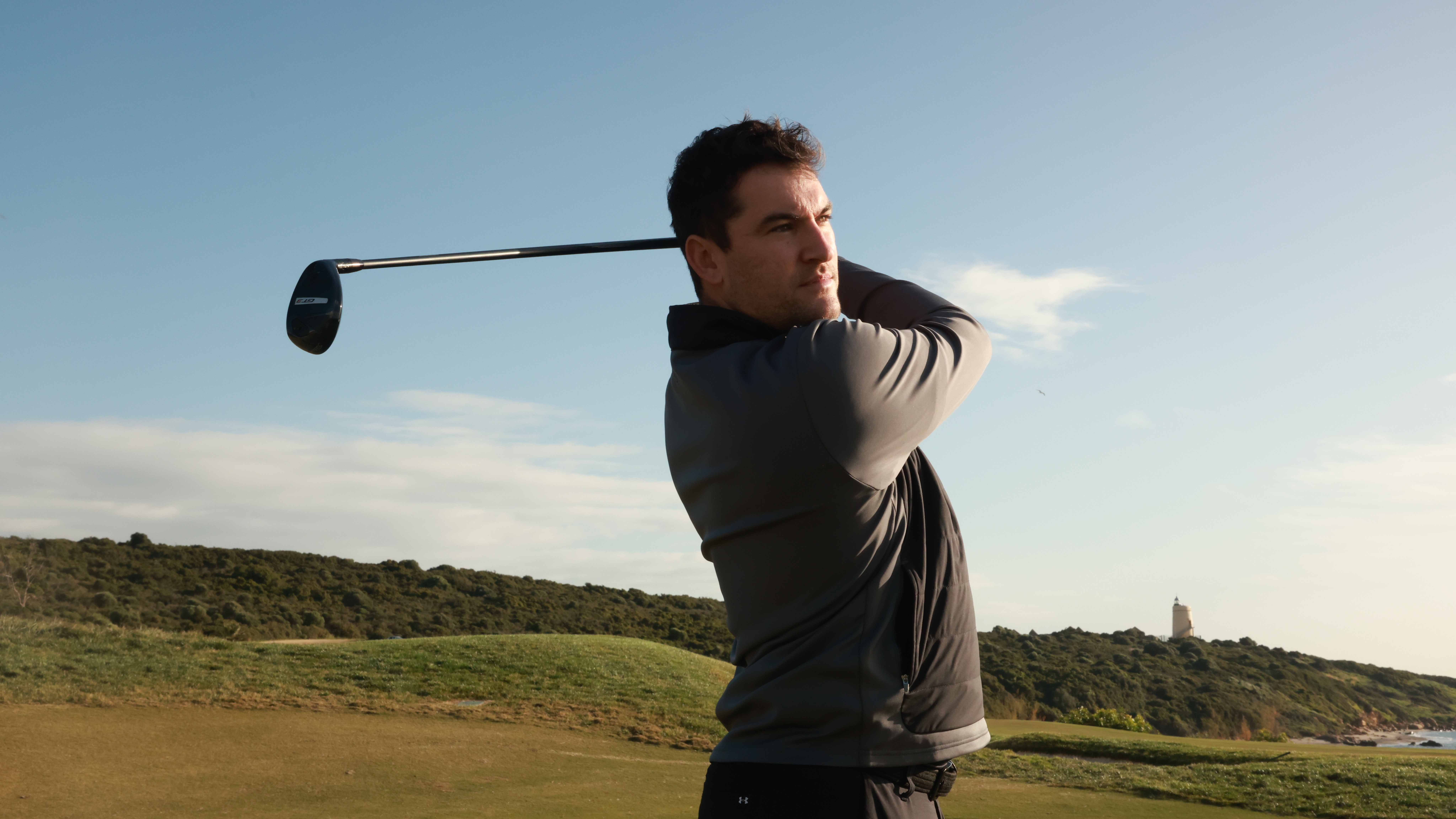
Sam De'Ath testing the Titleist GT1 Hybrid
Our hybrid testing is overseen by former Division One collegiate golfer and EuroPro Tour and Clutch Pro Tour professional Sam De’Ath, alongside Writer David Usher, who brings extensive hands-on equipment testing experience. Together, we use a process that has been refined over more than a decade of comprehensive club reviews.
Testing is divided into two main stages: indoor and outdoor. Indoors, we utilise one of the leading golf launch monitors to capture and analyse key performance data. This gives us measurable insights into metrics such as total distance, carry distance, dispersion, launch angle, smash factor and more, enabling accurate comparisons between models. When it comes to forgiveness, dispersion is a crucial metric. Specifically, the gap between the widest shots front-to-back and side-to-side. The tighter that grouping, the more forgiving the club.
Once we’ve established a clear performance picture in a controlled setting, we move onto on-course testing. Evaluating hybrids across multiple rounds, courses and weather conditions provides a true sense of how they perform in real-world scenarios. It also allows us to assess specific design claims. So for instance, if a club is built to produce a lower launch and excel in windy conditions, we’ll make sure to test it on a blustery day.
Our objective is straightforward: to deliver informative, impartial reviews that give readers confidence in their buying decisions. We never recommend a product because of brand loyalty or commercial influence and we never will.
How to choose the right hybrid
1. Performance
Performance is the most important factor when choosing a hybrid. You’re looking for versatility and a club that can lower your scores and bail you out in a variety of on-course situations. We’d recommend testing hybrids in as many scenarios as possible: off the tee, from the fairway, out of the rough, around the greens and even from the middle of a low-lipped fairway bunker. Pay close attention to how confidently and consistently you can launch the ball in each setting. A demo day is the perfect opportunity to carry out this kind of hands-on testing and determine whether a particular hybrid truly suits your game.
2. Feel
A thorough test will also reveal how a club feels throughout the swing and, crucially, at impact. Some models produce a louder, more explosive sound, while others are more muted. Some deliver a dense, solid thud at contact, whereas others feel hotter and more energetic off the face. Feel is entirely subjective and varies from player to player, which is why it’s so important to test clubs for yourself. We’d recommend hitting a range of models both indoors and out on the course so you can build a clear sense of what suits your preferences, as well as what doesn’t.
3. Looks
With all golf clubs you need to like how they look, especially at address, because you don't want to be distracted by a club you really don't enjoy looking at. Take some time to shop around, feel the club in your hands and see if you like the way it looks and feels at address. Does it match the rest of your set-up, will you feel completely comfortable putting it in the bag? As much as it may seem vain to judge a club on looks, it can increase your confidence on-course if you love the look of your hybrid when you pull the headcover. Not every hybrid is the same. Some are more wood-like in appearance, whilst others have a higher toe and are designed to look more like an iron.
4. Budget
The penultimate factor you should consider is budget. Given the number of hybrids available on the market, you can find a quality club at most price points and to suit almost any budget. If you want a premium brand model then you can get one, or if you want to save money, there is usually value for money to be found if you are happy not to own a club by a marquee manufacturer.
5. Testing
We don’t mean to repeat ourselves, but get down to the range and try a few out. Most facilities will still tape up demo clubs and allow you to run your own mini test session. It’s not a substitute for a full custom fitting, but you can still learn a lot.
You’ll quickly get a feel for the club’s weight, overall look and whether the shaft profile suits your swing. Even with tape on the face, hitting a handful of shots will show you how easy each hybrid is to launch and how consistently you can strike it. For higher handicappers in particular, that kind of hands-on testing can be incredibly useful.
For more advice on filling the tricky top sections of your bag, check out our guides on the best fairway woods and the best driving irons for more excellent options.
FAQs
How many hybrids should I carry?
Commonly, most golfers carry one or two hybrids to replace any club between a 3-iron and a 5-iron.
When should I use my hybrid?
Hybrids are excellent clubs to use if you find yourself in a difficult lie on the course and need a bit of extra punch to get the ball out of the long stuff. They can also be great off the fairway, in the rough, or even for those tricky small shots around the greens.
What iron corresponds to what hybrid?
Typically a 3-iron is replaced in the bag by a 19º hybrid. A 4-iron would correspond to a 22º-24º hybrid. And a 5-iron would correspond to a 27º hybrid.
Subscribe to the Golf Monthly newsletter to stay up to date with all the latest tour news, equipment news, reviews, head-to-heads and buyer’s guides from our team of experienced experts.

Sam has worked in the golf industry for 14 years, offering advice on equipment to all levels of golfers. Sam heads up any content around fairway woods, wedges, putters, golf balls.
Sam graduated from Webber International University in 2017 with a BSc Marketing Management degree while playing collegiate golf. His experience of playing professionally on both the EuroPro Tour and Clutch Pro Tour, alongside his golf retail history, means Sam has extensive knowledge of golf equipment and what works for different types of golfers.
- Conor KeenanGear & Ecommerce Writer
- Sam TremlettSenior E-commerce Editor
- David Usher